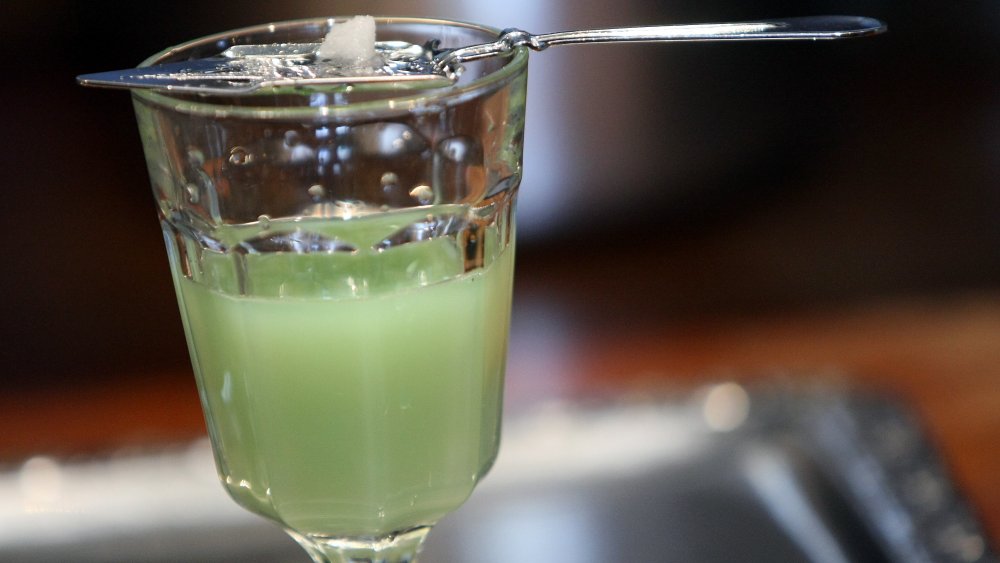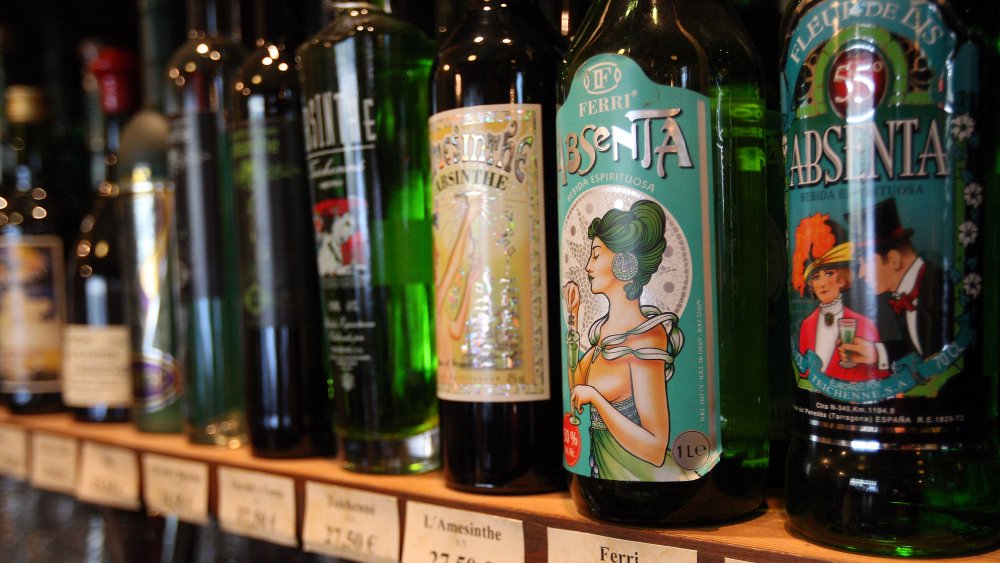Is Absinthe Illegal In The U.S.?
Drink often and publicly enough in America, and there's a 100% chance that you'll run into someone hellbent on correcting the way that you do it. Choleric comic book nerds of inebriation, they line up at the bar, just waiting to spot some ill-educated sucker to set straight with pearls of high-proof wisdom like "Mezcal isn't actually tequila," or maybe, "It's not technically Cristal unless it's distilled in the Puff Père region of France." God help you if you make the mistake of ordering absinthe. "That's not real absinthe," you'll be helpfully informed. As your new best friend continues, "Real absinthe isn't even legal in the United States. It's too powerful. I drank it all the time when I spent a summer in France." And then, they'll keep going on about it, and you'll find solace in the fact that no amount of amateur TED talking can get you less drunk.
As your fresh-faced companion describes how American audiences never really understood Jerry Lewis, your mind may wander. "Is absinthe actually illegal in the U.S.?" you might ask yourself. "And if so, why?" This line of thought may carry on as you take the opportunity afforded you by this stranger's bathroom break to hastily open Uber and hail a ride. What is the truth?
Ab-sinthe you athked...
Absinthe has had a rough go at life, and with good reason. Just look at the people who used to hang out with it: Vincent van Gogh, Henri de Toulouse-Lautrec, and Paul Gauguin were all notoriously into the beverage.
Thanks in part to its reputation as the drink of choice for filthy degenerate artists, the anise-flavored spirit started picking up plenty of attention towards the tail end of the 19th century. Stories made the rounds about absinthe's alleged side effects, which, according to Wired, included "hallucinations, artistic inspiration, degeneracy and homicidal mania." In theory, these could be attributed to the presence of a chemical called thujone, a compound present in the wormwood used to distill the drink.
Studies published by the NCBI have pointed out that the low levels of thujone in absinthe would require you to die of alcohol poisoning before receiving any kind of Pink Floyd-enhancing experience, but that's neither here nor there. Absinthe containing this particular chemical was banned in America in 1912, and stayed that way until 2007. Today, though, absinthe can be purchased legally, stateside, with thujone quantities below 10 parts per million, according to USDA guidelines.

